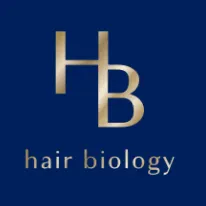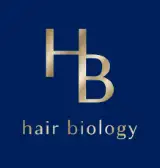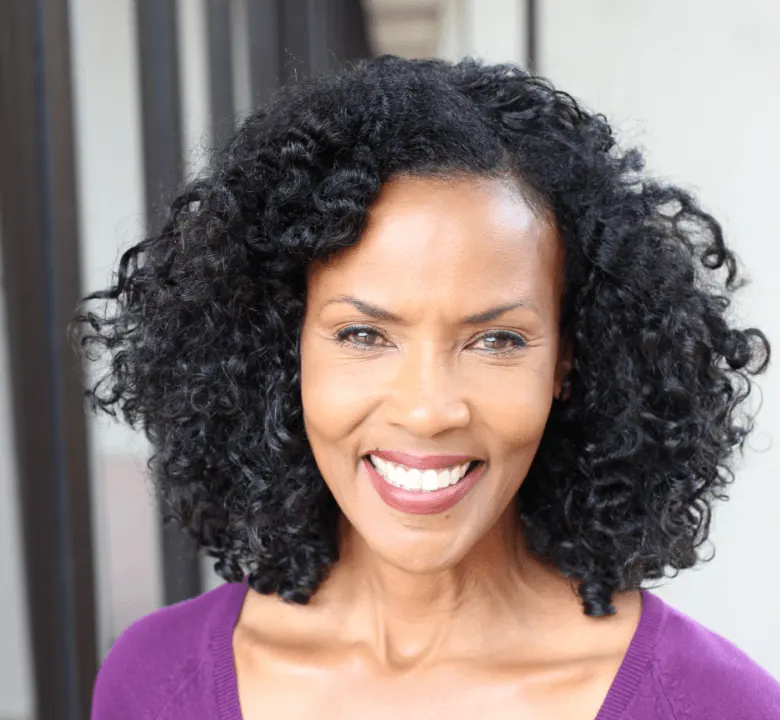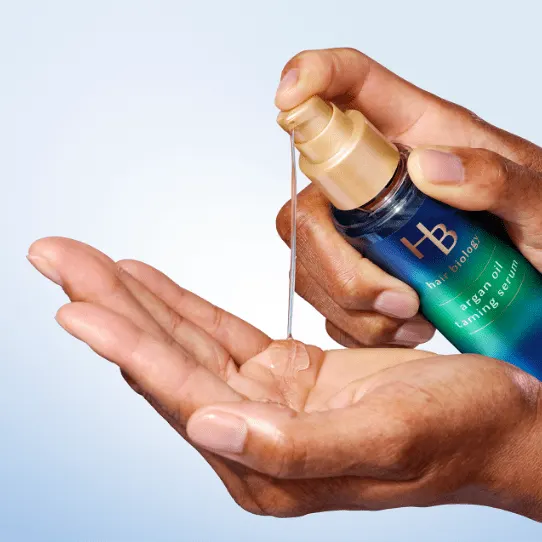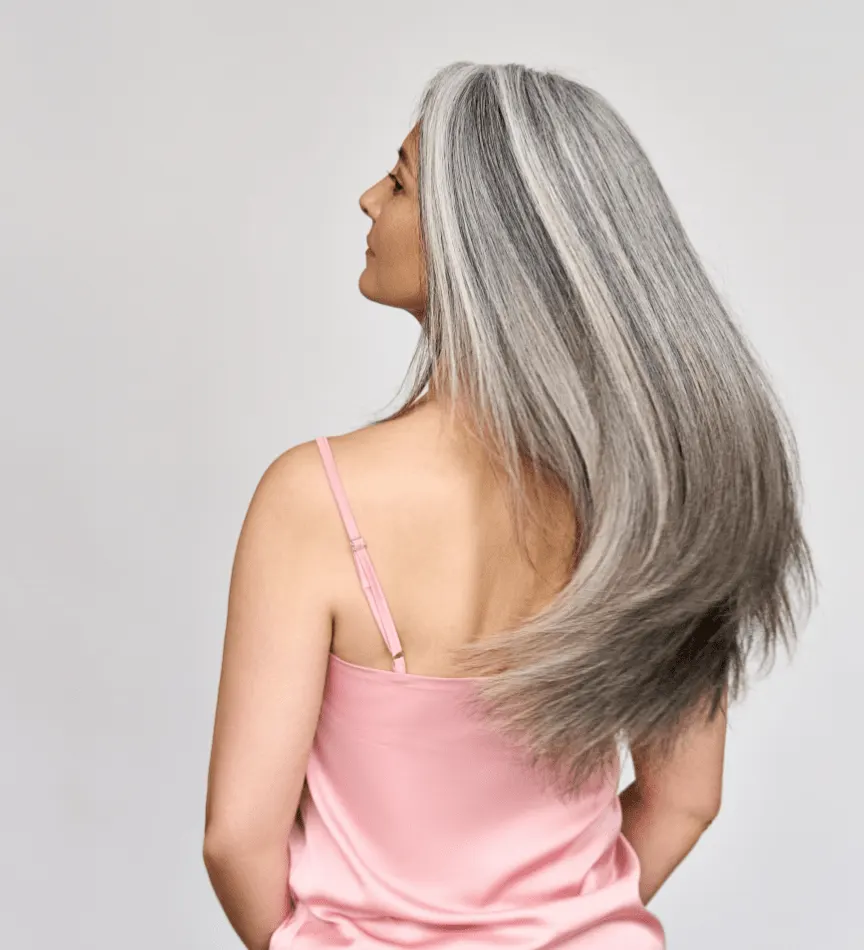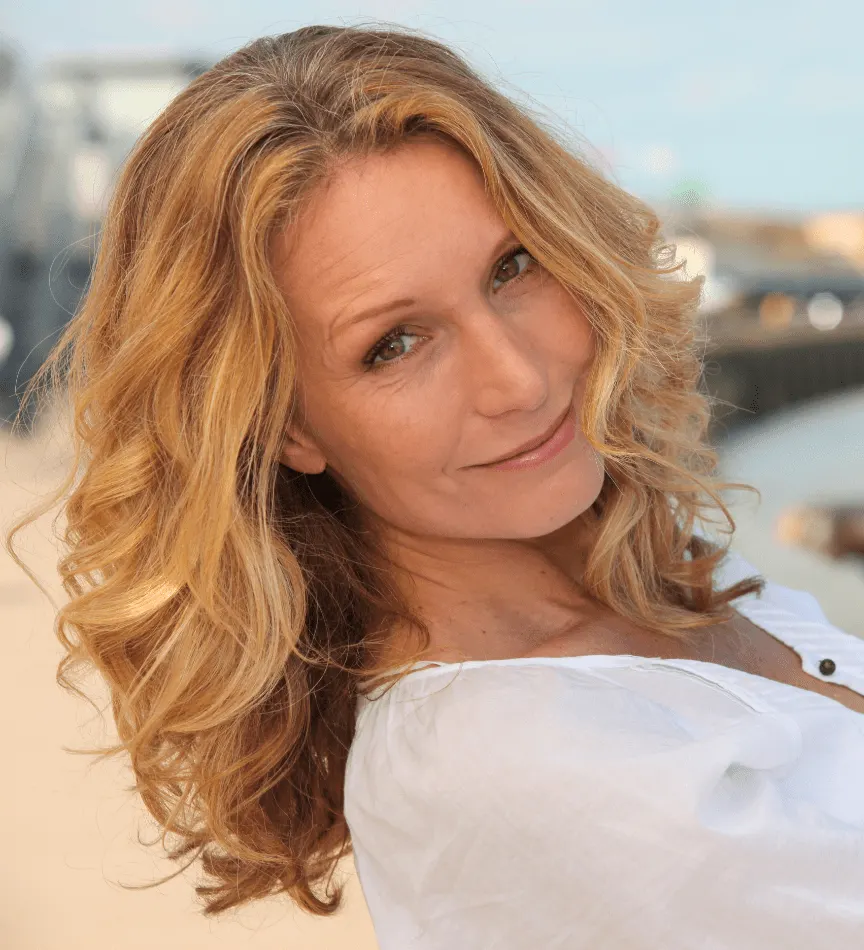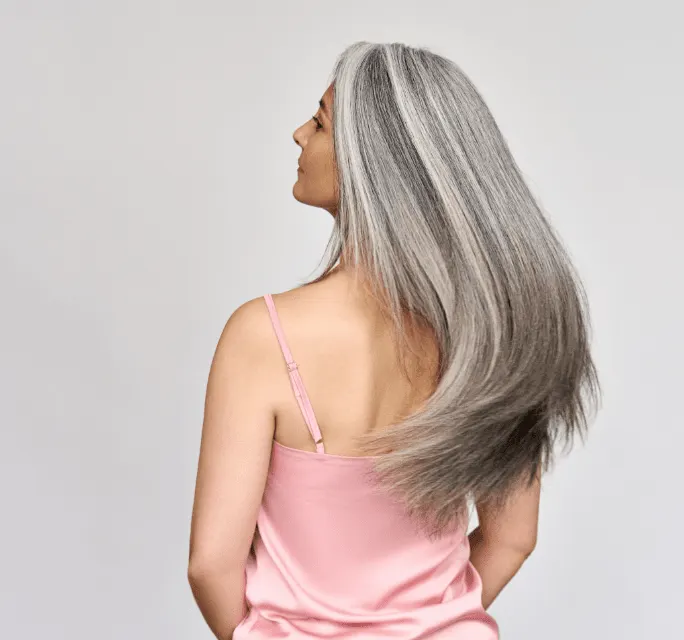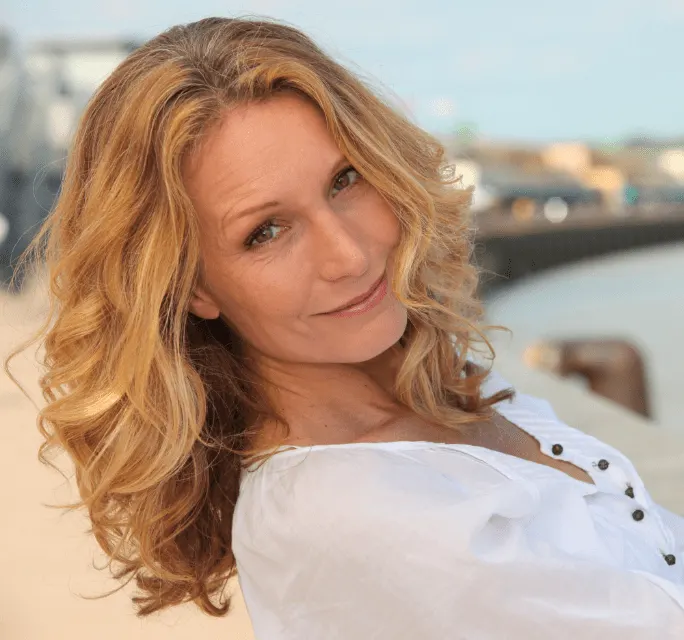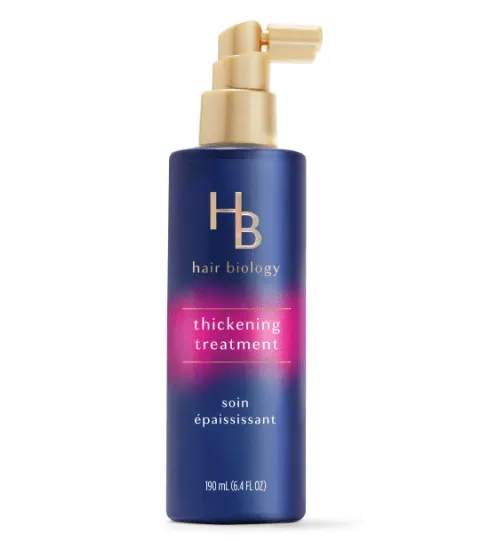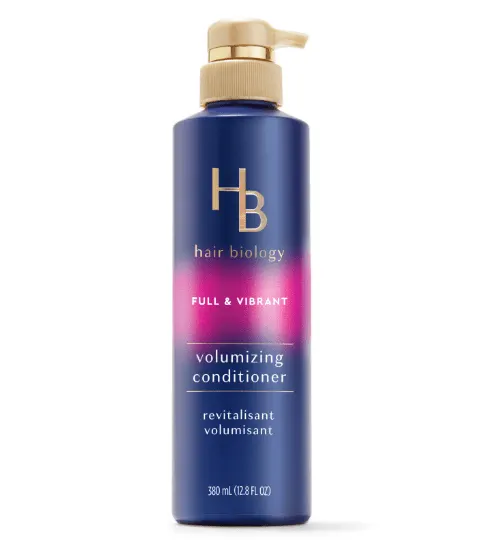What causes dry hair and how to rehydrate it after 50
I noticed it first at the park with my boys. It’s was a glorious, sunny day and my 11-year-old mop-haired twins were tossing around a football. My job was to call out when passersby were getting too close (their aim is mediocre, at best). And as my eyes bounced from kid to kid, I noticed how the sun was lighting up their ringlets like Botticelli’s Venus. Ooh, good lighting, I thought. Time for a selfie. But when I reversed my phone’s camera, my hair did not look silky or shiny or sun-dappled. It looked brittle and dull with a bunch of split ends. What happened to my damn dapple?
Add to that list of grievances that my hair is rough to the touch, breaks easily, and won’t hold a style—all telltale signs of dry hair. And I’m so not alone: “Almost all of my clients who are over 50 have dry hair, or at least it’s drier than it used to be,” says Christine Healey, a stylist at the Rita Hazan Salon in New York City. (As a 1969 baby, I’m right on time.) Turns out there’s a confluence of biology-based events that happen right around the age of 50 that make our hair drier than ever before.
But that doesn’t mean we’re doomed to a head of hay-like hair. Aging is inevitable, but hair products are powerful! Read on for the causes of dryness, and the hair-saving solutions that have brought my hair back from the brink.
Issue #1: We’re producing less oil.
“Hormonal changes lead to a reduction in sebum production with time, so the hair is already drier as it exits the scalp,” explains David E. Bank, MD, a dermatologist and founder of The Center for Dermatology, Cosmetic & Laser Surgery in Mt. Kisco, NY. Your body’s just not making enough oil to coat the strands, which keeps them pliable and lustrous. So even if you bemoaned your greasy scalp during puberty, now it feels more like the shine pipeline is shutting down.
Issue #2: The oil we do have isn’t making it as far.
“In your late 40s to early 50s, the curvature of your hair starts to change and become more irregular,” says P&G principal scientist Jeni Thomas. You may have noticed this in the mirror as hair that doesn’t lay right or flow the way it used to. “Just having more curvature makes it harder for your scalp oils to slide down the hair fiber.” (This isn’t news to you if you have naturally curly hair which, as a rule, is drier than straight hair.) Says Thomas, “Just like it’ll take you longer to descend a spiral staircase than a straight one, it takes longer for your scalp’s natural oils to make their way down a curly or wavy strand.”

How to rehydrate: Put the oils back where they belong! Oil applied to the surface of your hair can quickly restore your sheen and make it easier to manage. But unless you have loads of thick hair, you might find that pure oil makes your hair look limp and greasy. Instead, opt for an oil-infused serum like Hair Biology Argan Oil Taming Serum, a weightless hair smoothing serum and frizz control hair product. The other thing this serum is so good at? Bringing wayward hairs back in line, so that the argan oil will distribute evenly along each strand.
Issue #3: Your hair has a hard time holding on to the moisture inside, too.
So many of the things we use to make our hair look better—blow dryers, flat and curling irons, bleach—have the unfortunate effect of lifting and often damaging your hair’s cuticle, its protective outer layer. “The hair’s cuticle layer holds in your hair’s lipids that help prevent water loss,” explains Thomas. That’s compounded by the fact that, as we age, our hair cuticle becomes less resilient after damage. Less protection equals more dehydration.
How to rehydrate: The goal is to replenish your hair’s lost lipids and then seal the cuticle so that the moisture doesn’t escape again. And it’s easier than you think—just shampoo and condition with a formula that contains lipids like cetyl alcohol and stearyl alcohol, which are able to get inside the strand. “They're called ‘alcohol,’ but they’re not like rubbing alcohols,” explains Thomas. “They're like emollient and fatty, and so good for replenishing lost lipids.”
There are also certain polymers—bonding agents—that help block damaged sites on your hair that would otherwise release moisture. “Listen, they don’t sound sexy, but they really work,” says Thomas. “Ingredients with names like behentrimonium chloride, quaternium, ammonium; ingredients that end with I-U-M is what you’re looking for on the bottle.”
One more ingredient to be on the lookout for: biotin, a B vitamin that improves your hair’s infrastructure, helping you hold on to those lipids.
You’ll find the right lipids, polymers, and biotin in Hair Biology Soft & Hydrating Moisturizing Shampoo and Moisturizing Conditioner. Then, once or twice a week, add in a seriously hydrating hair mask like Hair Biology’s Deep Hydrating Mask, for a moisture surge that will make a big difference in manageability.
Issue #4: Grey hair is more vulnerable.
The coarser nature of grey hair makes it seem like it would be “stronger,” right? But the missing melanin—what gives your hair its color—means that you’re also missing the UV protective properties that melanin provides. Instead, explains Thomas, that “UV light will be absorbed by the proteins and the lipids in your hair, damaging them in the process and making hair more vulnerable to water loss.”
How to rehydrate: Sorry: Color-treating your greys won’t bring back your melanin (darn it!). And you can’t apply “sunscreen” to hair the same way you do to your skin (can you imagine a full head of zinc oxide?), but you can prevent UV damage in other ways. “There are ingredients called chelating agents that remove minerals from your hair that exacerbate the free radical damage caused by UV exposure,” explains. One such ingredient is an antioxidant called histidine, which you’ll find in Hair Biology Moisturizing Conditioner.
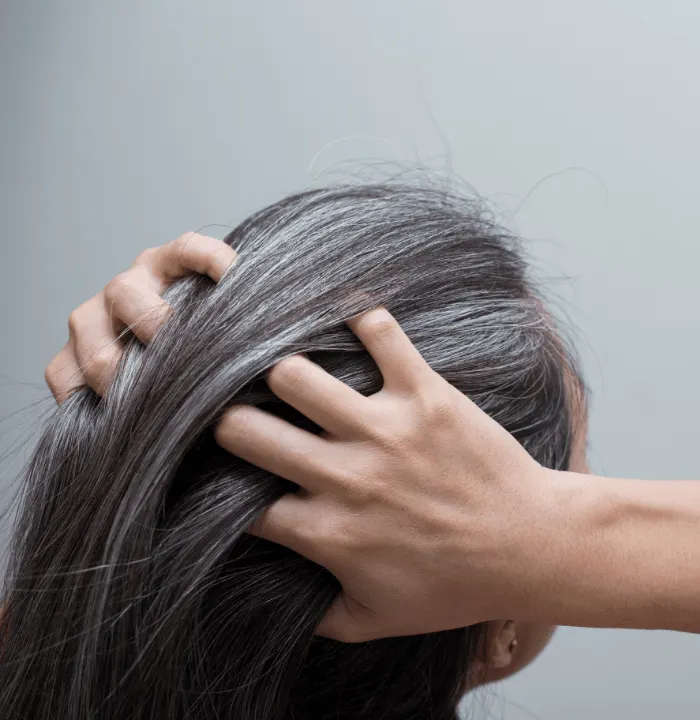
Issue #5: Medications are drying out your hair.
You know those statins you just started taking for your cholesterol? Yup, they might be exacerbating your thirsty strands. “Medications can reduce moisture, either by slowing your sebum production or the amount of water in your system,” explains Dr. Bank. The other way medicines can affect your hair: hormones. “The growth process is so hormonally driven,” says Thomas, “so any shift, whether it's medication, dietary, just life changes in general, anything that's going to change the hormonal balance in your body can very often show up as changes in your hair.”
How to rehydrate: In addition to all of the above suggestions, you can try an internal response to this internal issue. “Great hair at any age starts by treating it from the inside and outside,” says Healey. “Make sure your diet contains enough protein, iron, and zinc which all affect the health of your hair.” Healey also recommends hair vitamins if your diet is deficient in these elements. Omega-3 fatty acids are also thought to nourish and hydrate the scalp from within, so load up on walnuts, salmon, chia and flax seeds, and avocado, all excellent sources of omegas that happen to be good sources of biotin, as well. (Finally, my guacamole addiction has been vindicated!)

Share
